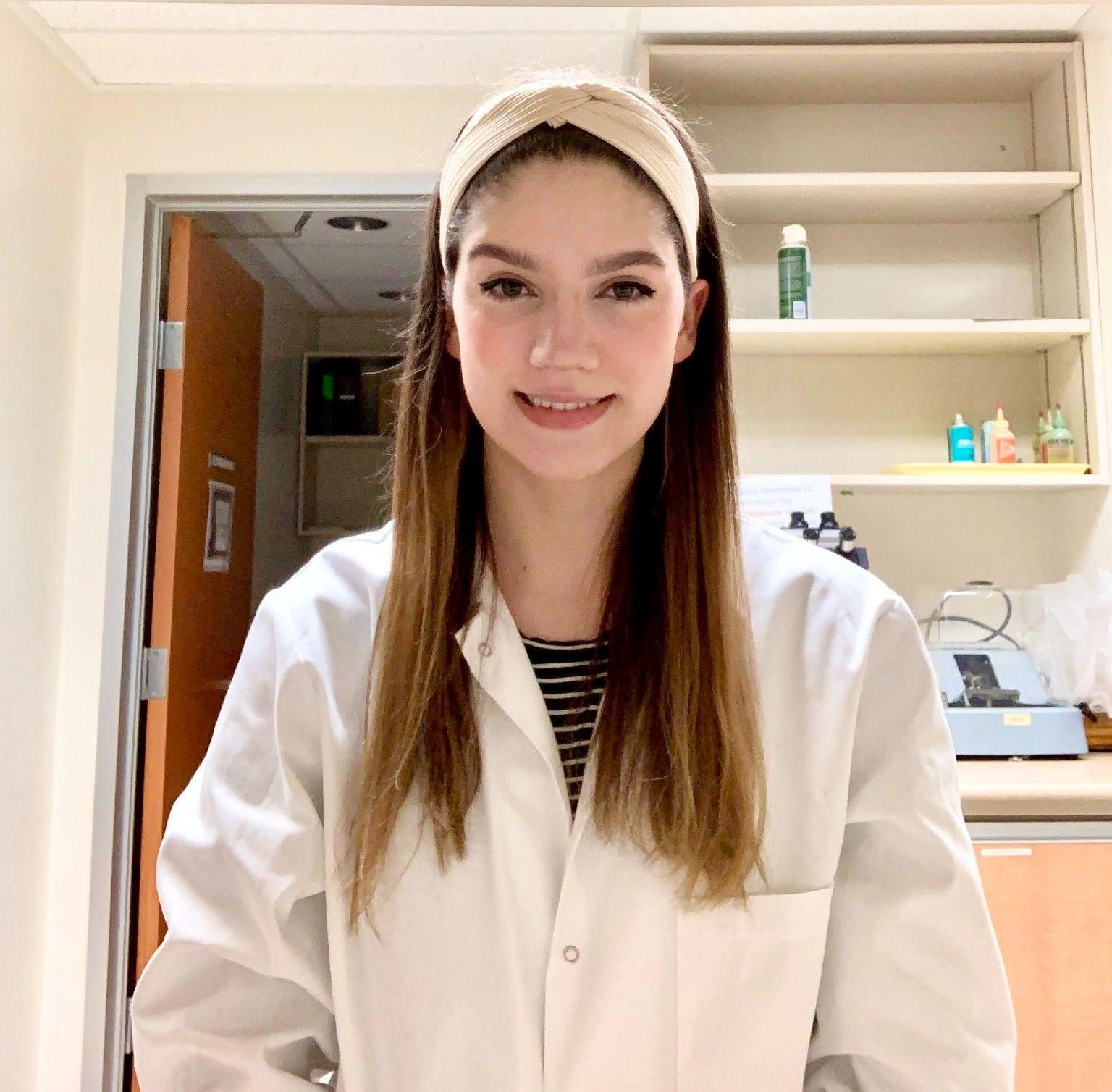Katie Souter

(She/Her)
Program: First year Master of Science in Neuroscience
Supervisor: Dr. Jason Plemel
Lab: https://amsrguofa.ca
Funding: MS Canada
Educational Background: Bachelor of Science Honors in Neuroscience and Certificate in Biomedical Research from the University of Alberta, 2019-2023
Hometown: Kitimat, British Columbia
Path to the Program
After her first year of undergraduate studies, Katie started working as a summer research student in the University of Alberta School of Dentistry, researching craniofacial development. She completed her honors undergraduate thesis in neuroscience, investigating the role of the meninges in neurodevelopment. Upon graduation, Katie knew she wanted to continue research in neuroscience. She had attended lectures by Dr. Jason Plemel and found glia, particularly microglia, fascinating. She also felt that the University of Alberta and the Neuroscience and Mental Health Institute are supportive of their researchers and have an excellent research program, fostering collaborations and a strong sense of community.
Can you describe your research project in lay terms?
In MS, the protective covering of nerve fibers in the brain called myelin becomes damaged,,disrupting signals to and from the brain. New strategies are needed to protect nerve fibres against this damage. Our team is focused on understanding how microglia, a type of immune cell found in the brain, are involved in regulating myelin. The role of microglia in MS is not well understood and under specific situations they can be protective and in other situations, they can be toxic. To study the function of microglia and its role in MS, we use a mouse model of MS that can induce demyelination by feeding mice cuprizone in their diet. We use this model to understand the timing and contribution of microglia in demyelination. We will also examine whether a particular immune molecule, called Cxcl10, causes microglia to become more destructive in MS. The findings of this study will provide further understanding of the role of microglia in MS pathology and may potentially lead to the development of new strategies to treat MS.
What has been your biggest challenge with research?
Coping with failed experiments and realizing the importance of asking for help has been the biggest challenge. It is impossible to do good science alone. Luckily, I am part of a supportive research team and a great network of people in the Neuroscience and Mental Health Institute.
What are you most proud of regarding your research?
The potential to make a positive difference in the lives of people with MS.
If you had unlimited resources, what type of research would you do?
Lots of big data projects - MERFISH imaging, single cell RNA sequencing, and high-volume drug development for remyelination.
What are your career aspirations?
After I complete my MSc in Neuroscience, I hope to attend medical school and become a neurologist. Ultimately, I aim to apply what I have learned through my research to a clinical context and make a positive impact in patients’ lives.
Outside of the lab, what keeps you busy?
Spending time with family, friends, and my dogs, and going for long walks in the River Valley. I also volunteer with the Campus Food Bank and Cerebral Palsy Alberta’s Dance Without Limits program.
Favorite thing about Edmonton?
The River Valley, especially when the trees change with the seasons. Edmonton also has an incredible art scene.